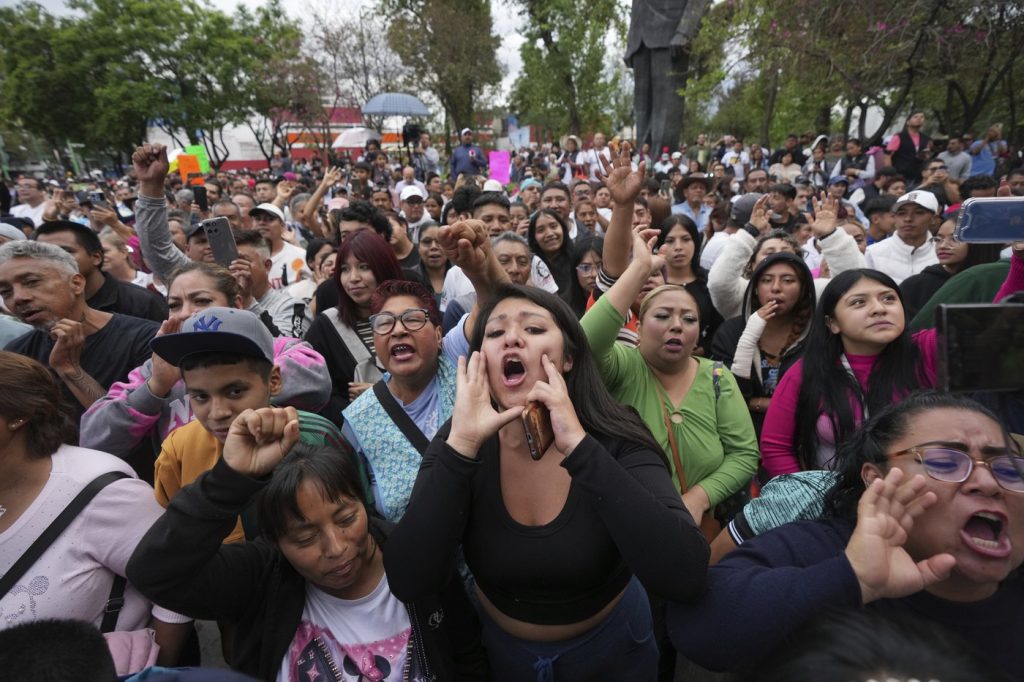MEXICO CITY (AP) – Mexicans are set to participate in the country’s inaugural judicial elections on Sunday, raising the critical question of whether electing judges will enhance democratic integrity or exacerbate existing issues of corruption and impunity in the judiciary. This election is particularly significant as it occurs amid increasing concentrations of power in the presidency, particularly under the popular leadership of President Andrés Manuel López Obrador, whose administration has faced accusations of undermining judicial independence.
The election features over 7,700 candidates competing for more than 2,600 judicial positions, including seats on Mexico's Supreme Court, with another set of judicial roles to be contested in 2027. This radical approach to judicial appointments marks an unprecedented global experiment, according to Carin Zissis, director of the Council of the Americas’ Washington office. Critics express concerns that electing judges could dilute important checks and balances on governmental power, potentially leading to a judiciary that favors the ruling party.
Traditionally, Mexican judges and court personnel acquired their positions based on merit and experience. However, with the current reforms spearheaded by López Obrador and continued by President Claudia Sheinbaum, the landscape of judicial appointments is significantly shifting. These reforms follow a series of confrontations between the executive and the judiciary, where the courts have often barred proposed executive actions deemed to overreach presidential authority.
In September, López Obrador’s Morena party successfully pushed through constitutional changes that not only limited the Supreme Court's ability to obstruct presidential initiatives but also established a disciplinary tribunal for judges. Critics argue that such steps risk reverting the judiciary to a state of irrelevance reminiscent of Mexico's past authoritarian regime, where the courts were effectively powerless.
Sheinbaum and López Obrador argue that by allowing the public to choose judges, the reforms will combat corruption and bring the judiciary closer to the populace. Sheinbaum emphasizes this shift as a transformative move for democracy. To qualify for candidacy, candidates undergo a lottery following evaluation by committees with representatives from all three branches of government, two of which are dominated by López Obrador's party.
The electoral reform, while seeking to address rampant corruption within the judiciary—an issue that resonates with a significant portion of the Mexican populace—has sparked considerable backlash. Protests from judges and judicial staff, as well as warnings from international observers, raise alarms about the implications of politicizing the judiciary. Opponents of the electoral changes contend that such a move will not enhance judicial integrity but instead serve to consolidate power within the ruling party.
Concerns surrounding the election include allegations of coercion and attempts to influence voter decisions, particularly surrounding candidates with questionable backgrounds, such as Silvia Delgado García, a former lawyer for the infamous drug lord Joaquín "El Chapo" Guzmán, who is running for a criminal court position in Chihuahua.
The alterations to the judicial appointment system have led to accusations that the government expedited the reform process without adhering to established candidate criteria, with reports of lower-court interventions disregarded. As a result, international investors and political analysts worry that these reforms could jeopardize the stability of democratic institutions in Mexico, especially amid changing political dynamics and increasing pressures from external entities.
The judicial elections thus represent a pivotal moment in Mexican politics, with potential ramifications for judicial integrity, public trust, and international investment. As Mexico embarks on this untested electoral journey for its judiciary, the outcomes remain uncertain, with many warning that the reforms could lead to unforeseen consequences within the justice system and broader governance.











